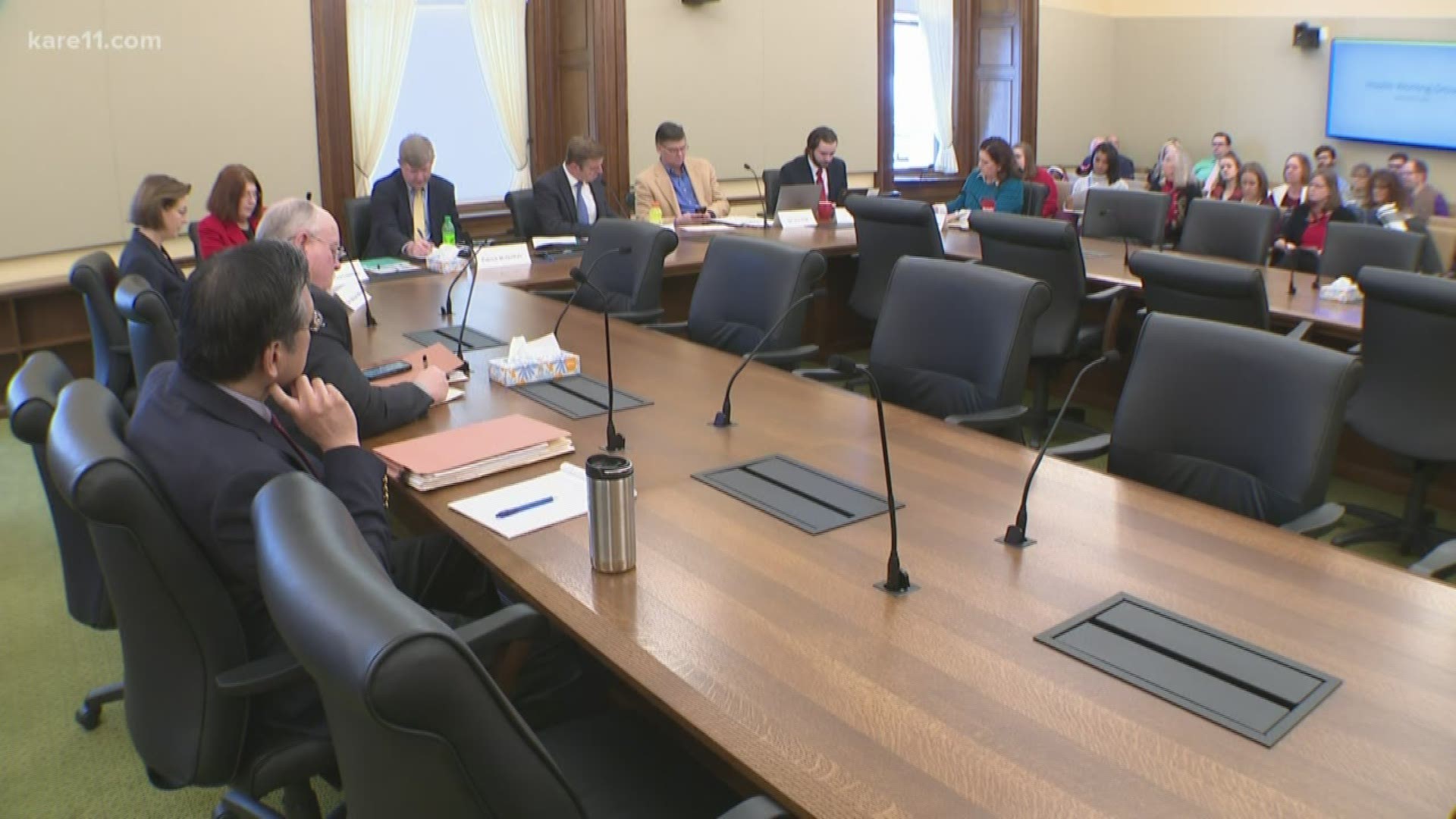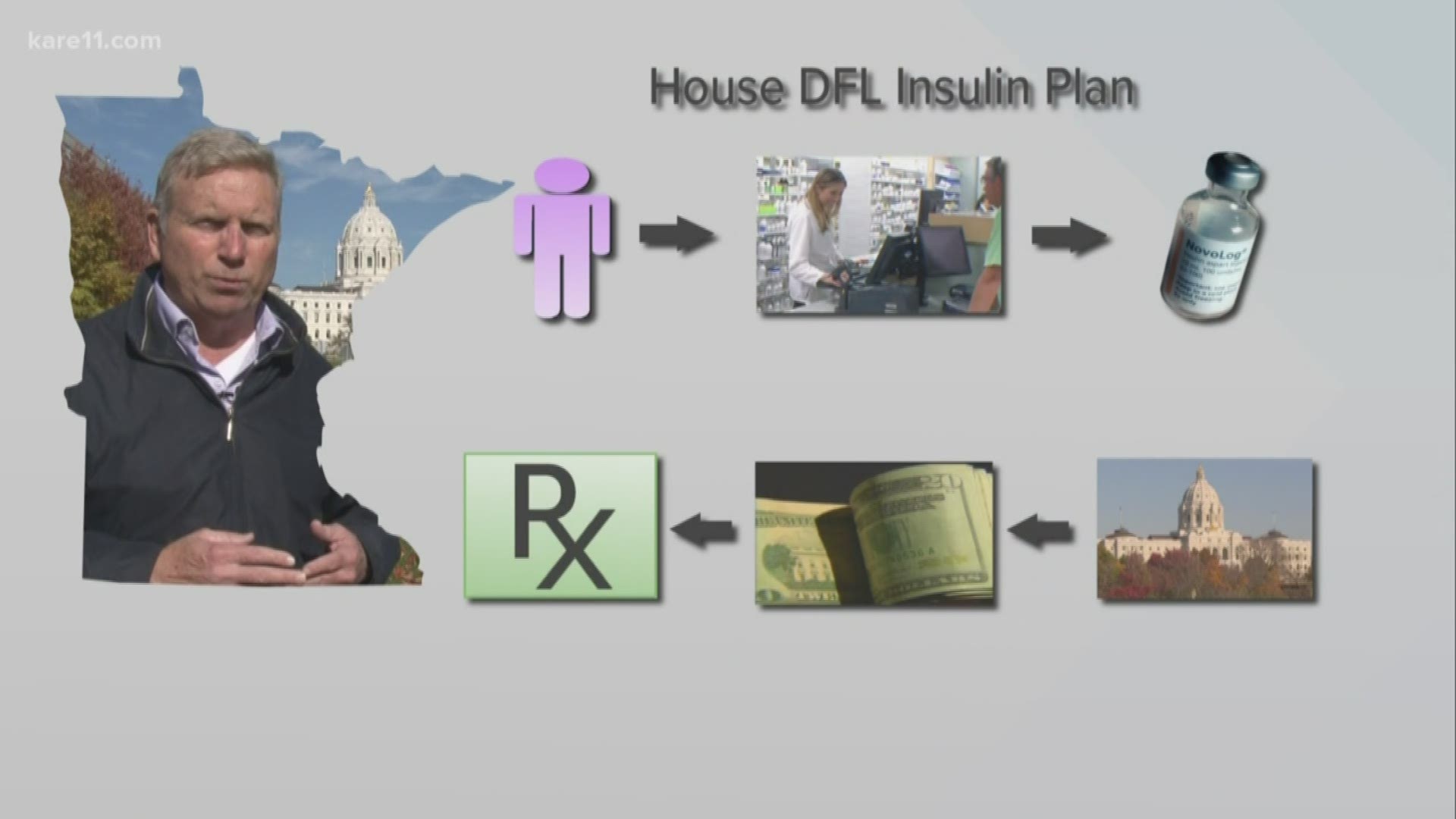MINNEAPOLIS — Lawmakers are holding out hope they'll come up with a new emergency insulin bill before the 2020 Session begins in February, but it will take a lot more work to craft a compromise that can pass both the House and Senate.
Members of the Insulin Working Group held a public hearing at the State Capitol Tuesday, after meeting privately on and off for the past 60 days. House Democrats and Senate Republicans have agreed the program should include both short-term emergency supplies for diabetics who've run out of insulin as well as a longer-term supply.
They still differ on who should be eligible, who should dispense that life-saving medication and who will pay for it. It's an attempt to respond to an affordability crisis that has claimed lives and drained family finances across Minnesota.
"We need to agree on who will pay for it. Will it be the insulin manufacturers, the public, or some combination of the two?" Rep. Mike Howard, the Richfield Democrat who co-chairs the working group, told KARE.
The House and Senate are still divided on whether that drug should be dispensed by pharmacists or by physicians. The Senate plan puts doctors in charge of securing donated insulin and handing it to the patient, while the House version would have diabetics get the drug from pharmacies.
Dave Renner of the Minnesota Medical Association told lawmakers that most physicians are not set up to receive and store insulin supplies or keep records tracking who's getting those drugs.
"That will cause new administrative burdens for physicians and other prescribers and also not be the most efficient way for patients," Renner told the panel Tuesday.
He said most physicians, especially outside of the Twin Cities metro area, don't participate in pharmaceutical programs. He said a better route would be drug discount coupons that patients could use at pharmacies.
Sen. Eric Pratt, the Prior Lake Republican who co-chairs the working group, said doctors should be able to work with drug companies to help patients get drugs they can't afford.
"What we’re hearing from the patient assistance programs is they’re distributing these affordable supplies, these free supplies through the doctors' offices," Sen. Pratt told KARE.
"All we’re asking the doctor to do is write a prescription that can be sent to the manufacturer, and then to send that to that to the doctor to hand out to the patient."
The Minnesota Pharmacists Association also urged lawmakers to keep the pharmacies as the key distribution point in any emergency insulin plan.
"When we build a house, we don't ask the electrician to do some of the plumbing," Jeff Lindoo, a veteran pharmacist and past president of the Minnesota Pharmacists Association, told legislators.
"Our health care system is designed for our patients to receive their medication from a pharmacy where all of the records are kept."
Lindoo said there's already an intricate infrastructure in place for prescription drugs to be dispensed through pharmacies, and pharmacists have keen understanding of distribution systems and record-keeping duties.
Unfinished business
Rep. Howard was the chief author of the Alec Smith Emergency Insulin Act, which passed the DFL-controlled House in 2019 but failed to get committee hearings in the Republican-controlled Senate.
"We know that every day Minnesotans are struggling with the cost of insulin. We know that Minnesotans are rationing their insulin. As legislators we need to feel that pressure that Minnesotans feel every day."
The original bill envisioned diabetics on the verge of rationing their drugs or being hospitalized could go to a pharmacist and receive an immediate 30-day supply that would be renewable. Once Senate Republicans examined the issue during a floor debate they faulted the bill over eligibility hang-ups and other issues.
Since the session ended Senate Republicans have proposed instead to have physicians dispense the drugs, which would be donated by drug manufacturers using the existing patient assistance plans that some pharmaceutical companies offer.
In the GOP plan, patients would apply through MNsure to confirm their income-eligibility, and then see a doctor who would ask the drug maker to donate a four-month supply to that patient.
Senators argued their system would strengthen the doctor-patient relationship. House members said they found things to like about the Senate plan but asserted it still didn't address of diabetics who've already run out of insulin and can't afford to buy more.


